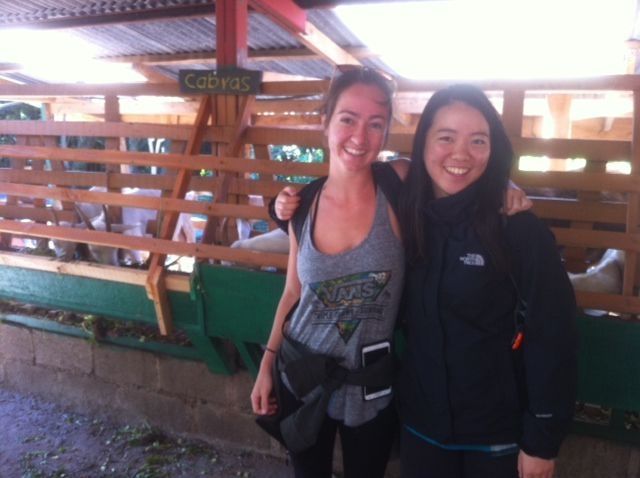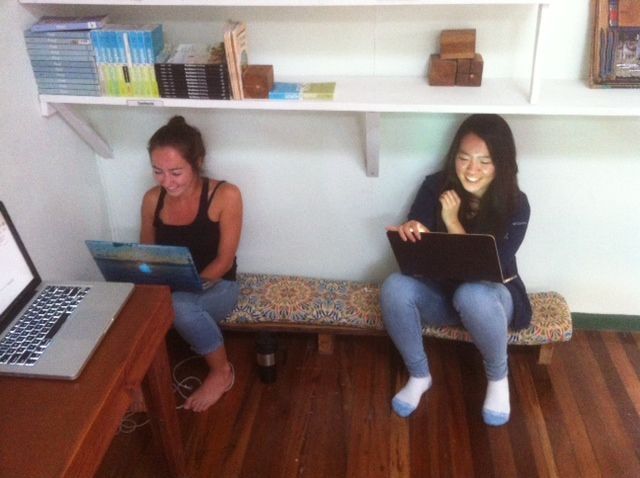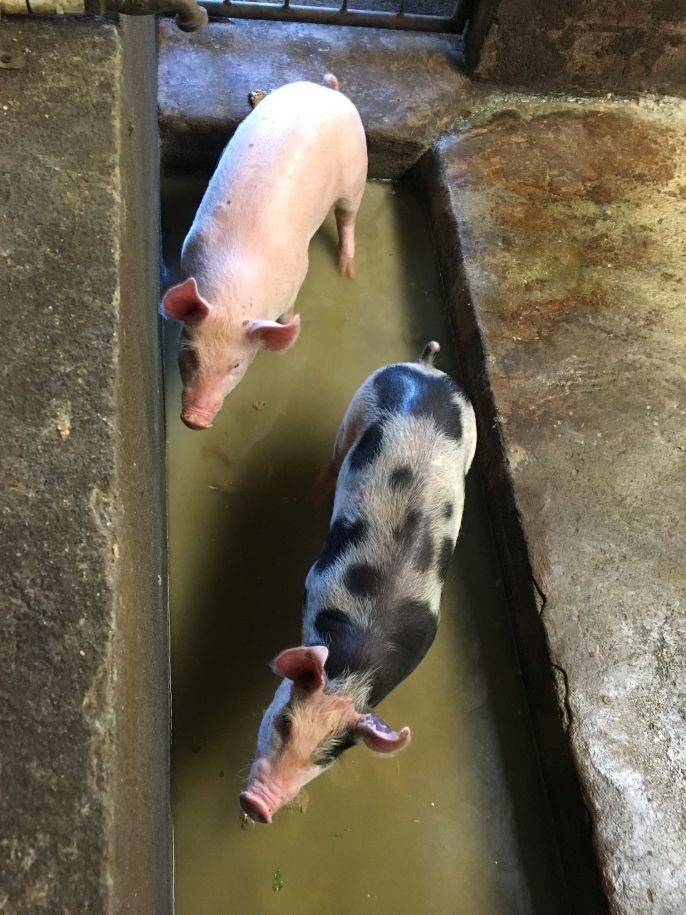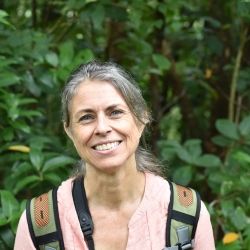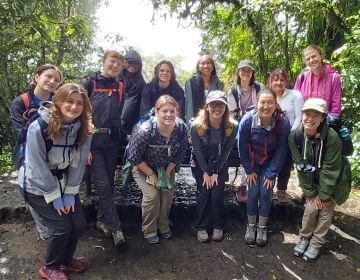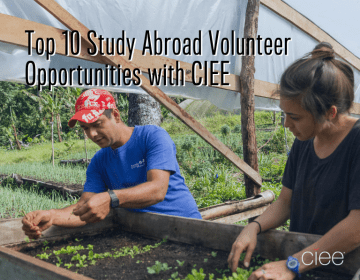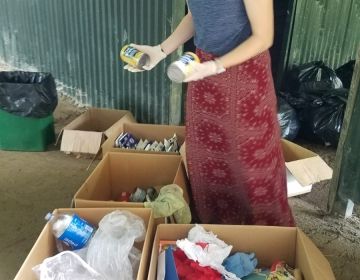Sustainability and the Environment Internship: The First Steps to Greening the Livestock in Monteverde, Costa Rica, by Sue Kyung Hwang, The George Washington University
Although I have no experience with livestock farming, my dining table was always deeply related to it. I have had meat for every single meal and have felt weird not to have any piece of meat on my plate. In college, I heard that livestock farming is related to climate change, but I never learned how. Even hearing people talk about it did not make me feel like my responsibility is huge. I was very interested in the issues of climate change, but I had to see with my own eyes why and how the livestock are related to climate change before I could believe it.
My internship was to create an inventory of the carbon emission by livestock in the Monteverde region for the Monteverde Commission for Resilience to Climate Change (CORCLIMA). Erin and I studied the concepts for the internship, made a set of questions to ask to the farmers, visited nine farms in total, created a database of all the farms, calculated their total emission, gave a presentation with all the results, and wrote reports for the farmers and COCLIMA.
Besides from the numerous goals that we achieved, being both inside and outside to get our works done was a great balance of experience for me. We went out in the field to visit the farms, talked to and learned from the farmers about their own sustainable practices and we came back inside to organize the data and prepare for the next interaction with the world. I have always lived in some of the world’s biggest cities and I was used to working with the data that I had passively accepted from somewhere else. I never got to see how things came to produce the information I got. The data I had was important, but I could not feel it. Through this internship, however, I could see exactly what kind of data I was working with and it would have been a lot different if I only had to sit inside to enter and calculate the data.
For this internship, I had to make the datasheet easily recognizable for other people and the continuous discussion and reformatting of the datasheet were great practices for me in handling the data. I also learned that even if I have the whole set of data, it is useless without effectively organizing what I have. In addition, I am very proud that some of my first few Spanish words are related to manure, livestock, and agriculture, because it means that I can now talk to and learn from more people on these topics. Finally, this internship proved me that my prejudice against group work was totally wrong. While group projects always presented me with huge challenges, this internship with Erin, Marcela and many other advisors helped me think, interact, and produce better outcomes.
Related Posts
Happy Earth Day: Today and Every Day
Happy Earth Day! Every April 22, this global event comes around to remind us how precious our planet is, what sustainable efforts we can make to protect Earth, and that... keep reading
Top 10 Study Abroad Volunteer Opportunities with CIEE
Have you ever wondered if you could volunteer abroad? Perhaps you're looking into study abroad programs that provide international volunteer opportunities. If you’re itching to study abroad and truly make... keep reading
Recycling Internship with ADI San Luis
Written by Maya Peske (Cornell College), Internship in Sustainability and the Environment The road from San Luis up to Monteverde is well known by all of the people in the... keep reading
